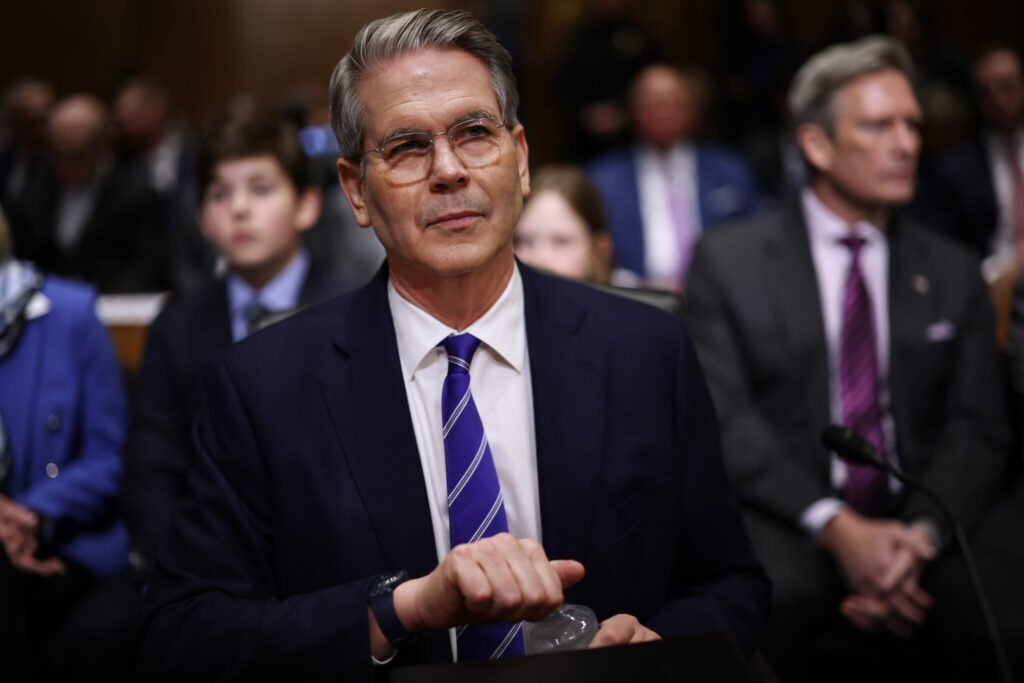WASHINGTON — President-elect Donald Trump’s Treasury secretary pick, Scott Bessent, seems likely to secure Senate confirmation following an extensive Finance Committee hearing. The session, which delved into tax policy and potential tariffs’ impacts on Americans, highlighted Bessent’s alignment with Trump’s economic strategies. GOP senators largely supported Bessent, unlike some other nominees who faced opposition from Democrats.
During the hearing, Bessent often deferred to Trump’s policies but detailed his own background and views. Chairman Mike Crapo, R-Idaho, praised Bessent’s qualifications, stating, “When it comes to your qualifications to be the next secretary of the Treasury, there is no room for debate.” In contrast, Democratic Sen. Ron Wyden expressed reservations, hoping for a nominee who would promote a fair tax code.
Republican Sen. Lindsey Graham vouched for Bessent’s competence, saying, “I’m here today to tell you, if you use qualifications as your test, this is the easiest vote you’ll ever take.”
2017 Tax Cut Law
Bessent addressed questions on the 2017 Tax Cuts and Jobs Act, a key focus for Trump and GOP lawmakers who aim to extend its policies. Through budget reconciliation, Republicans plan to pass their bill without Democratic support. Bessent emphasized that continuing the tax cuts is “the single most important economic issue of the day,” warning that not renewing them could harm the middle and working classes.
Bessent expressed support for extending the law for all income levels, from those earning $400,000 to over $1 billion, arguing higher taxes could negatively impact small business owners. He advocated for incentives to encourage investments from high earners.
‘A Spending Problem’
Bessent argued that the U.S. deficit stems not from insufficient tax revenue, but from excessive congressional spending. “We do not have a revenue problem in the United States of America; we have a spending problem,” he stated. He proposed adjusting federal domestic discretionary spending to balance the budget.
In fiscal year 2023, the federal government spent $6.1 trillion, with a significant portion on mandatory programs like Social Security and Medicare. Bessent suggested that cutting discretionary spending, despite potential economic impacts, could align federal finances.
IRS Direct Tax Filing
Bessent’s confirmation could impact the IRS’s Direct File program, which allows free tax filing. He committed to maintaining the program for the current tax season, promising to review it further if confirmed.
Tariffs Eyed
Bessent outlined potential tariff focuses under Trump’s administration, including addressing unfair trade practices and raising federal revenue. He mentioned tariffs as negotiation tools, particularly in response to sanctions. Bessent argued that tariffs wouldn’t raise consumer prices, a stance debated by economists and Democrats like Sen. Maria Cantwell.
Minimum Wage
Bessent advised against increasing the federal minimum wage above $7.25, considering it a state and regional issue, responding to Sen. Bernie Sanders’ inquiry.
Russian Sanctions
Bessent supported increasing sanctions on Russia to pressure an end to the Ukraine conflict, asserting, “if President Trump requests as part of his strategy to end the Ukraine war, that I will be 100% on board for taking sanctions up.”





